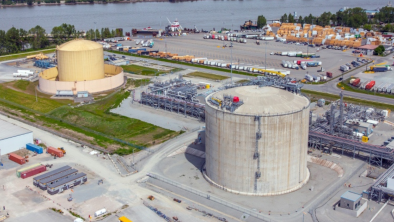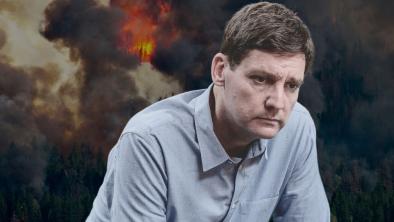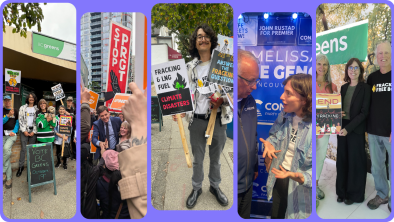‘Fracking’ more than environmental risk, forum hears
Kamloops Daily News

Hydraulic fracturing in B.C.’s gas industry — commonly known as “fracking” — poses an economic risk as well as environmental and social problems, a public forum was told on Monday night.
The Wilderness Committee, a B.C-based environmental group, is trying to raise public awareness about fracking, arguing that the extraction method needs more study before the province develops its liquefied natural gas potential.
“We’d be on side with a full review,” Joe Foy, national campaign director with the non-profit society, said earlier in the day. “Once things start to get pulled apart, they get interesting.”
In its latest budget, the Liberal government pinned the promise of future revenues on the idea of developing a liquefied natural gas export industry, including construction of a half-dozen plants in northern B.C. by 2020.
But the proposal is a two-edged sword.
As late as 2007, B.C.’s natural gas industry met a soaring demand for power, Foy noted. With the boom in fracking over the last 10 years and growth of the North American shale gas industry, the bottom has dropped out of the natural gas market, creating a fiscal challenge for B.C. since the province has grown dependent on royalties.
“Ladies and gentlemen, watch out for the push-back,” Foy said. “Companies are looking for much greater subsidization. We’ll have to multiply power production in the province many times over.”
Both fracking and liquefied natural gas production demand large supplies of energy and water. B.C. would need additional power in the order of the proposed Site C dam to bring an LNG industry into operation, he said.
“The problem is construction of one Site C would cost $8 billion to $10 billion. If you’re paying that out, you can’t afford to sell natural gas because it costs too much to make.”
Then there is the environmental factor. Fracking poses a local threat to aquifers, while an LNG industry would undermine the province’s goals for reducing greenhouse gas emissions.
“B.C.’s plans for natural gas and LNG development make a mockery out of the province’s 2007 greenhouse gas emissions targets,” said Eoin Madden, climate change campaigner with the society.
Madden described LNG as the gas industry’s version of the oilsands, an accelerator of climate change.
NDP energy critic John Horgan, visiting Kamloops on Monday, also pointed to a need to review the practice of fracking.
Horgan said he is supportive of developing the LNG industry because of its economic potential, but favours a more cautious approach.
There needs to be a scientific review of the practice, particularly to address problems around water resources and potential contamination. Landowners and farmers specifically need to be permanently protected from that threat, he said. There is an overarching environmental concern as well.
“We need a clearer idea about the greenhouse gas ramifications.”
If exploiting the resource is still considered in the best interests of the province, there would have to be corresponding cuts on the transportation and housing side of the emissions equation, he said.


